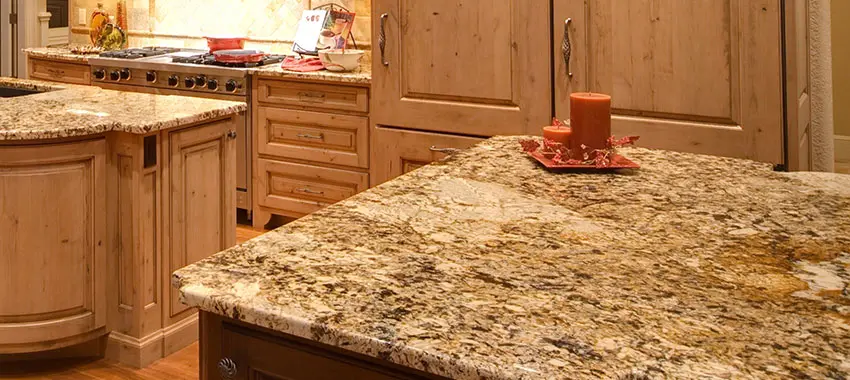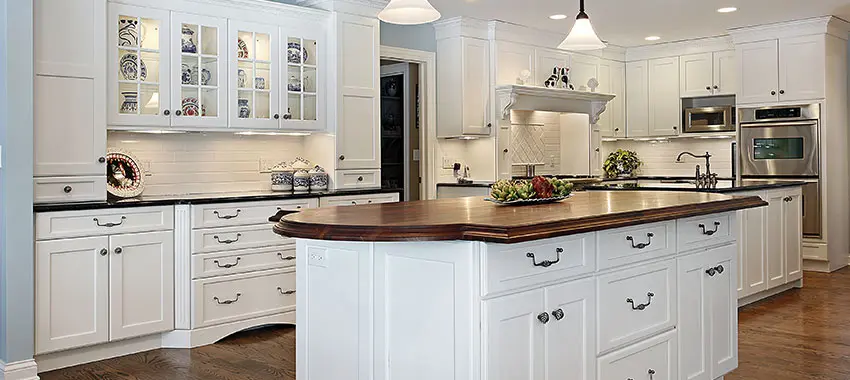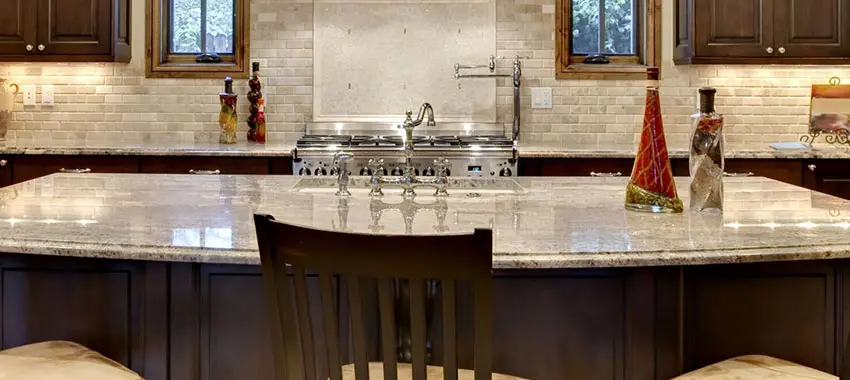Aug
What Are The Different Grades Of Granite Countertops?
It’s a fact granite can transform any kitchen or bathroom surface, but before you rush to install granite countertops, you should know granite comes in different grades that include:
Level 1 granite
Often referred to as builder’s grade or commercial grade, level 1 granite is a lower quality granite, often imported from China and sold through big box stores, granite liquidators, or cut into tile.
This granite has a consistent pattern, but it comes in a variety of colors to choose from, including beige, green, brown, grey, and black.
One of the most popular colors is Santa Cecilia, a light beige stone with bursts of burgundy, gold, yellow, and black. There is also Ubatuba that features an elegant dark green background with speckles of brown, gold, and black.
You may also find White Fiorito attractive. It features black and brown speckling on a soft white slab base.
The material is usually pre-fabricated and used in apartments, furniture, and prefabricated models. This granite is usually of a thinner cut, usually 3/8 inch, and it requires you to install a plywood backing to provide it with more strength.
Although, the slab comes with an entry-level price, it’s durable and highly versatile. This makes it an ideal choice for indoor and outdoor projects both in commercial and residential applications.
Level 2: Mid-grade granite
From its name, this is a mid-grade granite with a thickness of ¾ inch. The material is usually imported from India or Brazil, and it’s characterized by unique colors, more uniform patterns, and a variety of markings.
Granite at this level is known as the silver, and as a homeowner, the best stone to buy is one between “single silver” and “double silver.” At this level, you can find most of the colors available in the market ranging from light to absolute black.
The silvers have speckles, veining patterns, or flecks. They might also be uniform with plenty of options to choose from.
Mid-range granite slabs are ideal for projects throughout the house from kitchen islands to vanity tops and Jacuzzis, to hearths and fireplace surrounds.
Since they are imported, the slabs vary between shipments, so you should avoid buying them online. The best way to go about it is to visit the stone yard and see the individual slab and determine whether its ideal for your application.
Level 3: High-grade granite
This is the finest quality of granite, and it’s often referred to as the gold. Granite of this level often comes in rare colors, unique, striking patterns, or a combination of both.
The best place to use this granite is in the kitchen as a countertop or as a signature piece for islands. You can also use it on smaller vanities, around fireplaces, and tub surrounds.
Level 4 exotic granite
Exotic granite is naturally rare, with quarries producing limited quantities. This makes it the most expensive countertop material and often common with homeowners that want to make a bold statement in their house. Most homeowners install the countertop on fireplaces, coffee tables, and accent pieces.
Choosing a high-quality granite countertop
For the countertop to last for a long time, you should buy a high-quality one. When making the purchase, you should pay attention to several things that include:
Size: A good quality granite slab should be square, rectangle, or any of your desired shapes. The tolerance shouldn’t exceed 1 in length, and the breadth and thickness tolerance shouldn’t exceed 155 inches.
Color: A good quality granite slab should have a uniform color, uniform thickness, and homogenous crystalline texture.
Hardness: The slab should be hard, dense, and sound. You can check the hardness of the stone by pressing it with a hard object. If you press it and chips of the stone split, stay away from the slab.
Polishing: The stone should have one face properly polished and the edges straight and perfectly at a right angle, which can be achieved by machine or hand cutting. This not only gives the countertop an elegant appeal, but it also makes it easy for granite contractors Rockville to install it.
Talking of installation, ensure the stone is installed by experienced contractors. You don’t want technicians to destroy a stone you have spent a leg and arm on, do you? The contractors should also be insured. This way you are sure you will be compensated in the event of an accident.




